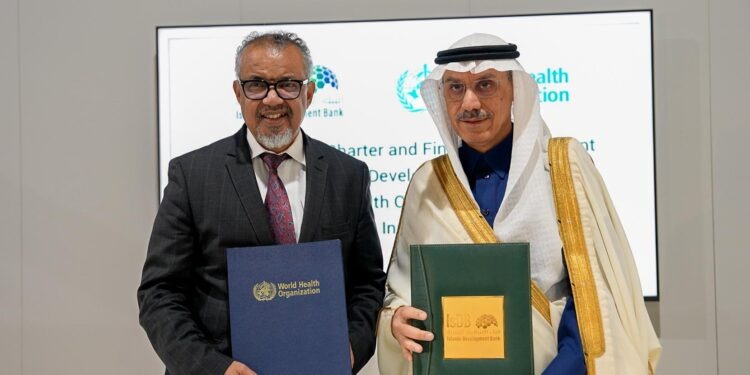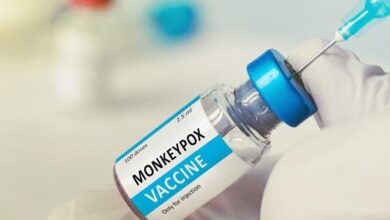COP29: Islamic Development Bank grants $10m to WHO for Health Impact Investment

The Islamic Development Bank (IsDB) has committed a $10 million grant to the World Health Organization (WHO) to support the Health Impact Investment Platform (HIIP), bolstering its mission to strengthen primary healthcare systems worldwide.
Announced on November 12, 2024, during the UN Climate Change Conference (COP29) in Baku, the grant highlights IsDB’s dedication to enhancing health resilience and climate adaptation in low- and middle-income countries.
In a statement on Tuesday, IsDB described HIIP as a groundbreaking partnership among Multilateral Development Banks (MDBs), WHO and nations seeking robust health and climate solutions.
“This initiative focuses on the investment in essential, climate and crisis-resilient primary health care services and systems,” the bank stated, emphasizing the aim to reinforce the health system, especially in low- and middle-income countries and in underserved communities, ultimately aiming to foster resilience against emerging health threats and climate challenges.
Fifteen countries are identified as part of phase one of the Health Impact Investment Platform: Burundi, Central African Republic, Comoros, Djibouti, Egypt, Ethiopia Guinea Bissau .
Other countries included Jordan, Maldives Morocco, Senegal, South Sudan, The Gambia, Tunisia and Zambia.
Supporting WHO’s technical assistance goals
The $10 million grant will specifically support the technical assistance that WHO provides to countries around the world to assess investment needs and to design the most impactful health projects.
“These projects will serve as the foundation for co-investment by the MDBs, ensuring that resources are directed toward areas with the greatest potential for positive health outcomes,”IsDB added.
Over the next four years, WHO aims to strengthen climate resilience as part of its Fourteenth General Programme of Work, which includes implementing national climate adaptation plans and making 10,000 health facilities fully operational, including solar-powered electrification.
Unlocking $500m in health investments across the region
In addition to the $10 million grant, IsDB’s contribution is projected to unlock at least $500 million in health investments across the region.
“This collective goal is part of a broader effort to mobilize a total of US$ 1.5 billion in concessional loans and grants, focusing on critical areas, this way addressing national health priorities.”
Advancing health resilience, leadership statements
IsDB President Dr. Muhammad Al Jasser said, the Islamic Development Bank is proud to support the Health Impact Investment Platform as part of our unwavering commitment to advancing universal health coverage and resilience in our Member Countries.
“These Multilateral Development Banks and WHO partnerships enable us to scale up primary health care where it is needed most, creating a stronger foundation to withstand future crises and addressing the pressing health challenges of today.”
“Together, we are fostering a healthier, more equitable future for communities across the globe,” he said.
WHO Director-General Dr. Tedros Adhanom Ghebreyesus emphasized that low- and middle-income countries need access to sustainable financing to strengthen their health systems through primary health care, to make them both more resilient to pandemics and more equitable in delivering essential health services.
“The Health Impact Investment Platform combines WHO’s public health expertise and on-the-ground presence with the resources and financing expertise of the Islamic Development Bank and other multilateral development banks. By working together, we can make a significant difference in improving health outcomes and creating a healthier future for all.”
The IsDB, along with its partners, remains committed to fostering partnerships that will advance healthcare and improve quality of life globally.





